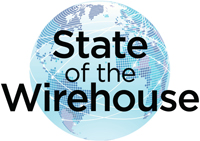WealthMangement.com: There’s a perception that there is less innovation in the wirehouses than the independent channel.
DK: I don’t agree with that at all. If you look at even the nomenclature, the term wirehouse—think about how long that term has been around and where it came from—it doesn’t even match what we are anymore. So it’s kind of ironic that we’re still referred to as that. But it’s probably used now more about the size of the firms, and partly, at a point in time, even maybe the parents.
But if you look at the so-called wirehouses, even the parents are fundamentally different. There’s a lot of commercial bank ownership. We still are an investment shop by DNA. An investment bank married to a wealth management arm, that’s our model and it’s unique.
WealthManagement.com: The four remaining wirehouses have gone through a lot of consolidation. Do you see the four big firms continuing?
DK: I think you’ve already seen firms rise up to the top. I think if you look at what we do for a living, advice is needed. So if you marry the notion of advice not being a commodity—and I believe that and we believe that—to how this business operates, scale matters. So you have a handful of firms now that are in that size where they can deliver powerful, good advice though technology, through the advisors, and you need scale to do that. When you have that scale, you can invest in the technology, you can invest in your people, you can invest in platforms, you can invest in relationships and if you don’t have scale, you can’t possibly keep up. It doesn’t work that way.
 WealthManagement.com: What is the difference between a Morgan Stanley and a Merrill Lynch?
WealthManagement.com: What is the difference between a Morgan Stanley and a Merrill Lynch?
DK: If you look at the importance of the wealth management business to the overall firm—I think that is striking for people. Obviously they’re all big, but if you look at the uniqueness of things like our advisory consulting business—it’s number one on the street. It’s always been not only huge, but also incredibly innovative. We’ve year-in, year-out launched things that others have followed.
If you look at our capital markets business, not only at where our capital markets presence is—which is in the wealth management business—but also in the institutional side of Morgan Stanley. It’s actually the best of both worlds there. So it’s with us in terms of the ‘client-first’ aspect of it, but we have the parent capital market activity—what we refer to 1585, the institutional securities group business.
If you look how we’re building our banking and lending platform, we’re building it for our advisors—that’s different than others. Things like our alternative investments department, which is in this building, I believe that’s number one on the street in terms of how we’ve built it out.
I think there’s a difference in culture, a difference in parents—I think there’s a difference in the investment excellence in the wealth management part of the overall franchise. When you put these great firms [Morgan Stanley and Smith Barney] together, because obviously we just went through a merger, you actually have two great firms coming together and you can actually pick the best from amongst the two. It’s a really fun time for us.
WealthMangement.com: A lot of advisors are moving toward independence. What’s the long term impact?
DK: I wouldn’t believe everything you read. If you look at that notion [that advisors are moving toward independence], we haven’t seen it.
The power of the franchise, that scale, the institutional presence, the global presence—it’s firms like Morgan Stanley that deliver to the advisor so they can do the best thing for their clients. So we haven’t seen that movement to them, in fact, there’s a number going the other way. It’s going full circle.
Sometimes we over-complicate things. The world is complicated, global economies. It’s much more complicated than even 20 years ago when maybe we were growing up in the business. I think to do the right thing for the client, you need a global powerhouse franchise so you can have an opinion when you talk to your clients and help them out. And the resources that firms like ours bring to bear—they’re unmatched.
WealthMangement.com: There’s been a lot of discussion about the next generation of advisors, the graying advisor population.
DK: Every firm is trying to figure that out. We have fundamentally changed every single thing about our new advisor training program. I mean literally everything: from the curriculum, to the way we measure them, to the way we source them, to the way we think about teaming, to the way we actually put them into apprenticeships, to the way we pay them, to where we train them—we have literally changed everything.
And we’ve seen great results, although it’s still early. We’ve brought down the number of hires we’ve done, we’ve brought it down significantly. We’ve changed everything and we’re actually seeing all the fruits of those changes pay off now. Our success rates are dramatically better than they once were.
Check out the rest of our State of the Wirehouse Q&As:
“I Don’t Work for a Wirehouse”




